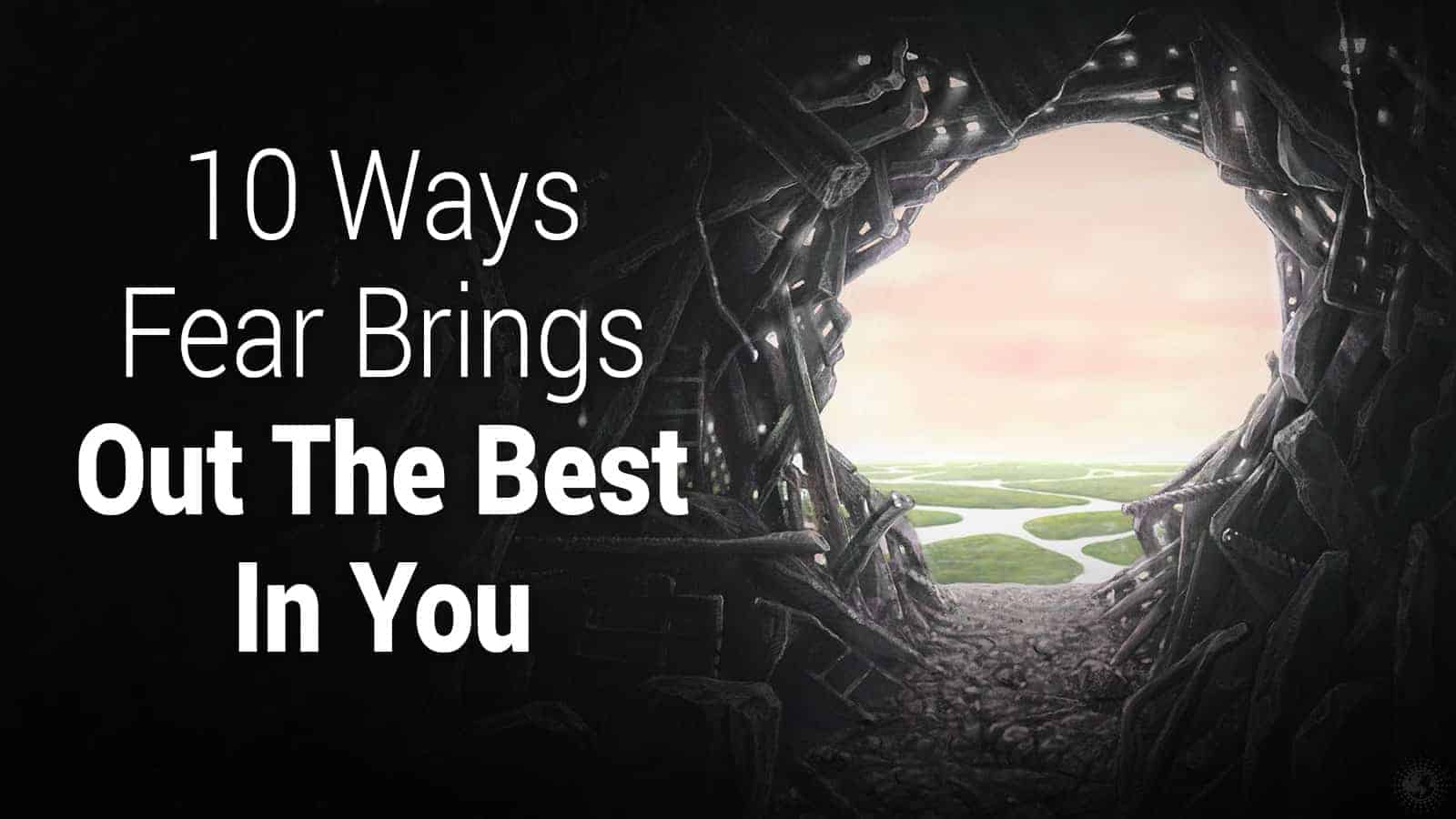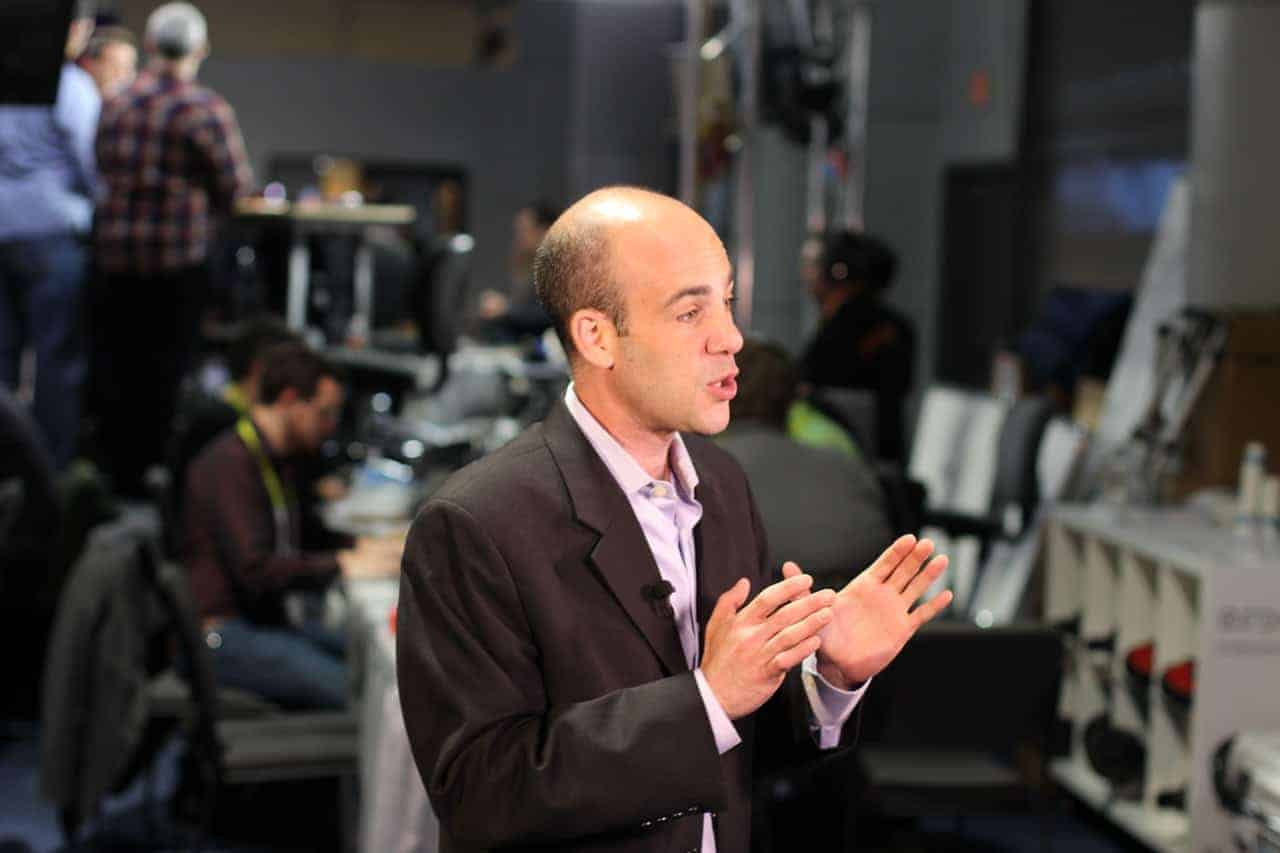Fear is a healthy and universal human emotion, and it’s also one that is very difficult to manage. It can be crippling, it can ruin opportunities, and it can be the cause of severe emotional difficulties.
But what if I told you that fear can be a positive thing and can be used to your benefit? Here are ten ways fear brings out the best in you.
1. It Teaches Analysis
Fear is both our biggest enemy and one of our most excellent teachers. When you are stricken with fear, your brain goes into overdrive, and it seeks to identify your options, analyze them, and decide on what the best decision is.
Of course, it is entirely possible to become so paralyzed by fear that you are unable to properly analyze it or your situation, resulting in over-analyzing or under-analyzing. The risk of making a more deficient decision is always a constant worry for many.
As such, when faced with fear, you need to come up with a battle plan to overcome it and use it to your advantage. Here are some tips to properly analyze your concerns while under their effects:
- Evaluate your potential solutions and identify both the advantages and disadvantages of them
- Be cautiously bold in your choices and thought.
- Try to expect or predict your problems.
- Look at the problem from a different angle and try to seek external perspectives if required.
- Believe in your instincts
- If all else fails, plan what you want to do and just go for it
2. It Makes You A Champion
Fear can be used as an excellent driving force to make you a better and stronger person. All successful people get to where they are by facing their fears and working proudly towards achieving their distant dreams. Here are some tips on how to use your fears to make you a champion:
- Use your feelings of fear and turn them into a competition with yourself. Set a target for yourself and try to shoot past it every time
- Learn from your past goals that you have set
- Remember the mistakes that you may have made and learn from them
- Step out of your comfort zone
- Keep going until you succeed, no matter what
3. It Teaches You To Let Go
Fear manifests in many different ways, and one of these is through the fear of a lack of control. Not feeling in power can be very frightening, and it can decrease positive thinking and even make you more prone to mood and anxiety disorders.
But there’s the truth: no one is ever truly, really in control. There are some situations in life where letting go of outcomes is simply your best option. In some instances, you will try, and circumstances outside of your control will still stop you.
Stay positive! Failure is a part of the journey to success. Instead of focusing on all the things you can’t control, focus both on what you can and on the beautiful things that can come when you let the world and universe sweep you up.
4. It Makes You Aware
Fear is a natural response. It is your brain telling you of danger, whether of a physical or mental kind, sometimes triggering a fight-or-flight response. In the latter cases, what your fear is doing is making you hyper-aware of your surroundings. This awareness allows you to take in extra information that gives you more power in decision-making.
Fear can be detrimental when it holds us back, so don’t let it control you in that way. The next time your fear gets to you, use the somewhat unsettling hyper-awareness to gather knowledge that helps you find more efficient solutions. This is you taking and using your fear to your benefit.
To add to your awareness, think of some of the common fears you feel in a day and how the knowledge they grant you can be harnessed. Here are some of the most common concerns experienced by most people:
- Failing
- Change
- Getting rejected
- Losing
- Public speaking
- Success
- The unknown
5. It Lets You Build Skills
A common fear that many faces is the fear of being inadequate. You may fear that you lack the knowledge, skills, talent, or ability to reach goals properly, find success, or carry out tasks. A lot of the time, this fear is an excellent teacher, but it’s blown out of proportion.
What do we mean by that? Well, simply put, fear acts as an alarm for your brain, informing you of potential difficulties with the task or goal at hand. When allowed to run unchecked, that fear takes over you, ruins your positive thinking, and exaggerates your flaws.
But what happens when that fear is kept in check? That means you get to listen to the warnings your brain is sending you. Should you put in an extra hour of practice for your chosen skill? Do you feel underprepared for an evaluation because you genuinely are? Do you feel inferior to your peers because you don’t put in as much effort?
Once you take note of these fears and rationalize them, you can use those concerns to build on the relevant skills. Here are some ideas for overcoming shortcomings:
- Take some time to try and better understand what the problems you face are
- Learn a new ability to keep your brain sharp
- Ask for constructive criticism from those you look up to
- Self-reflect on yourself and your progress
- Expand your knowledge by doing research and study
6. It Can Make You Feel Good
For some people, fear is a feeling that they enjoy. Yes, really! This is because the emotions that arise from stepping outside of your comfort zone can make you feel alive thanks to a rush of adrenaline. For some, it can be an exciting and even a new sensation that teaches of the benefits and positive sides to fear.
Think of it this way. Fear is like coffee – an excess is bad for health, but a small amount gives you positive effects instead. So let yourself feel a little fear and appreciate the energy that comes from the accompanying adrenaline rush. Here are some activities that you can do to get that small dose of healthy fear in your life.
- Take a skydiving lesson
- Ride a high-speed roller coaster
- Try zip line or white water rafting adventure
- Watch a horror movie or play a horror game
7. It Pushes You Out Of Routine
Fear can be unpleasant, but it can also be a mechanism for pushing you outside of your regularly scheduled routine.
Take this, for example. When taking on a big project that you may not have all the skills for, you are forced to come out of your comfort zone to complete the project. One of the biggest fears you will face is self-doubt, as you are unsure of your methods. Your mind might be conflicted – do you apply knowledge for past projects to this, or change it up and try something new for this unfamiliar territory?
This fear is now pushing you to consider leaving your safe routine, allowing you to try tackling it from a different point of view. This makes you more innovative, and it helps you rise to new challenges in ways that will make you less frightened in the future.
8. It Helps Health
Believe it or not, fear can be good for your biological health. Here’s how:
· It Helps Weight Loss
Believe it or not, a study found that watching a horror movie can burn up to 200 calories each time, which is more than other positive forms of calorie-burning like 30-minute walks. Why does this happen? Well, fear causes a quickened pulse, which surges adrenaline and sets your metabolism into its fastest form, burning off fat and sugar as your heart beats faster to send those components to your muscles.
· It Keeps You Safe
Fear is a crucial part of life because it keeps you safe. It makes you care about threats to your life and can kick you into survival mode in difficult situations. The adrenaline you get from fear can even help you do things you usually would be unable to do.
· It Boosts Immunity
Watching a horror movie or doing something else that triggers fear can have positive results on your immune system, according to a Coventry University study. When you are frightened, more white blood cells, activate to fight off disease and help fix current problems with your body. You can also try a horror based escape room venue in Bristol for a fun and thrilling experience.
9. It Gets Easier
Have you ever noticed that seeing the same scary thing multiple times can make it less scary, or at least decrease the involuntary reaction your body has to it? This is because the first time you overcome fear is always the hardest. It gets easier the second time, the third time, and so on.
Essentially, this process allows you to make small improvements in the way you handle, manage, and challenge your fears. This can become a habit over time, allowing you to fight your fear and harness it where it can be used without needing to try very hard.
10. It Makes You Overcome Barriers
When you experience fear, you are eventually forced to confront their sources. While a good number of fears are at least somewhat reasonable, you’ll find that most of them are forming barriers in front of you that prevent you from progressing. Some of these barriers are real, but some are imagined.
Examples of barriers, both real and imagined, include:
- Defensiveness
- Fear of being wrong
- Inaction
- Anxiety
- Stress
- A dislike of change
- Uncertainty
- A desire for control
- Being stuck in your ways
- Feeling overwhelmed
- Demanding fully planned paths
- Loss aversion
- Fatigue
- Impatience
- Low self-esteem
- Distrust
To say that you need to remove your imagined or changeable barriers is an understatement, but to actually get to that point is difficult. Take small steps towards breaking past your barriers, and don’t stop – make sure you’re always taking actions towards getting through them.
Final Thoughts On Some Ways Fear Brings Out The Best In You
When used correctly, fear is far from a bad thing. It can bring out the absolute best in you over time in ways that would not have been possible without fear. Learning to harness your fear gives you a powerful tool in your life’s journey.





















